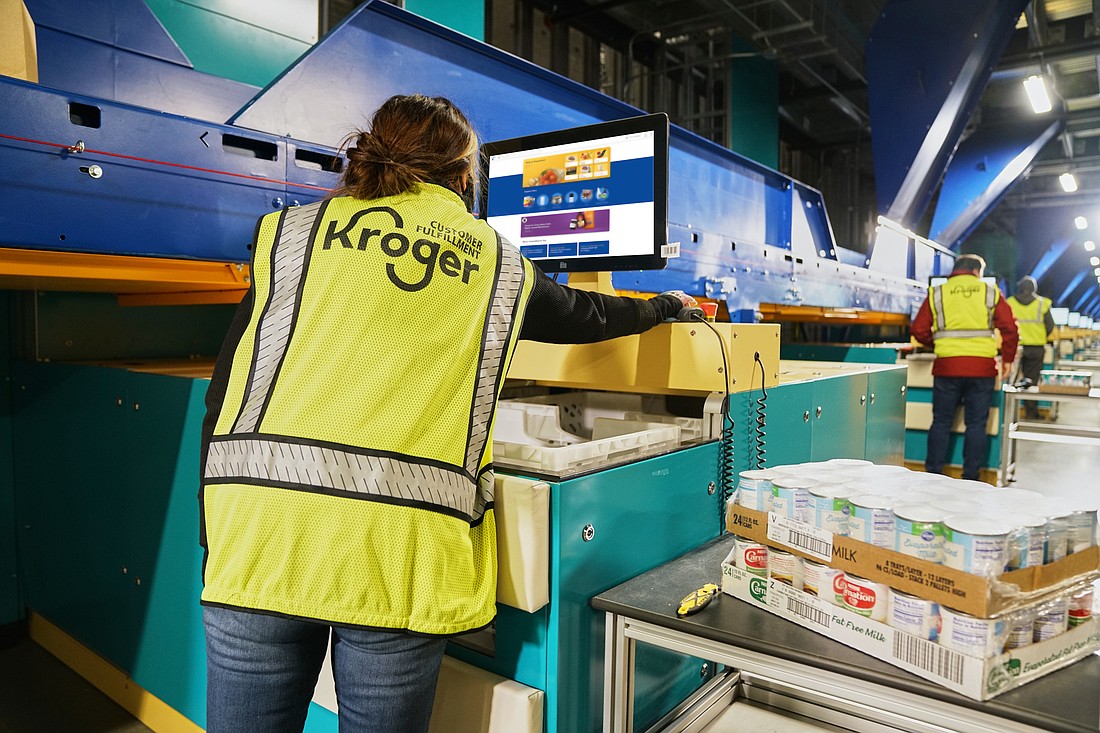- December 13, 2025
-
-
Loading

Loading

The Kroger Co., which only recently began delivering groceries in several Florida cities, including Tampa, now plans to expand into the biggest metro region in the state: Miami.
Andrea Colby, e-commerce corporate affairs and communications manager for Florida, says that “at this time we do not have a start date.” But several employees at Kroger’s new 375,000-square-foot fulfillment center in Groveland, Lake County, say they’ve been told the center is getting ready to begin delivery service in Miami later this year.